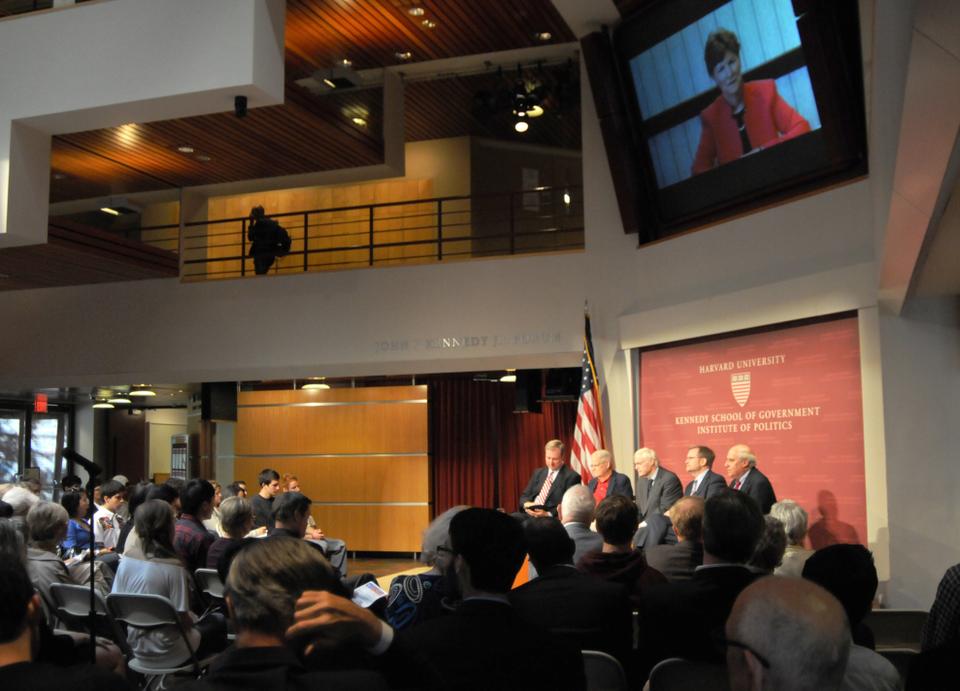
News
HMS Is Facing a Deficit. Under Trump, Some Fear It May Get Worse.

News
Cambridge Police Respond to Three Armed Robberies Over Holiday Weekend

News
What’s Next for Harvard’s Legacy of Slavery Initiative?

News
MassDOT Adds Unpopular Train Layover to Allston I-90 Project in Sudden Reversal

News
Denied Winter Campus Housing, International Students Scramble to Find Alternative Options
IOP Talks Campaign Finance

Former directors of the Harvard Institute of Politics admonished today’s campaign finance system for setting a divisive tone in politics at a panel discussion Friday.
The panel members agreed that many of the problems in politics today are associated with politicians’ connections to special interests.
“Unfortunately, everyone in Washington is deeply indebted to deep-pocketed institutions, whether they be corporations, unions, or individuals,” said Chairman of the National Endowment for the Humanities and former Congressman Jim Leach.
Discussing the constant search in politics for campaign contributions, former Secretary of Agriculture Daniel R. Glickman noted how much campaign costs have increased since he ran for Congress in 1976—and how this can make officials indebted to those who support them.
“People do not give you money because they like your hairline or the way you look. They give you money because they want access and hopefully influence,” he said.
Leach added that he believes last year’s Citizens United Supreme Court decision, which stipulated that corporations should be legally treated like citizens under campaign finance laws, contributes to the problem.
“This has to be reversed, and it can only be reversed by the Court changing its mind, by new members of the Court, or by a constitutional amendment,” Glickman added. “The public has to say that this truly, truly matters.”
While much of the criticism centered around campaign finance, the panelists also noted cultural shifts.
U.S. Senator Jeanne Shaheen (D-N.H.) said she sees the aggressive discourse in politics as a symptom of a larger social problem.
“It’s always the people who are most difficult, the most outspoken, who seem to be the stars,” she said. “It’s not just politics—it’s our whole public dialogue that I feel has gotten too destructive.”
Shaheen also stressed the need to address the issue and to find a way to make the public trust government.
“[We need to show] that those of us who are political leaders are adults,” she said.
The panel was titled “Civility in Politics: Is There Hope?”
“We did subtitle this, ‘Is There Hope?’ I haven’t heard a lot of hope,” joked current IOP Director C.M. Trey Grayson ’94.
But solutions to many of the structural problems facing the nation are possible through a combination of traditional organization and modern networking tools, said former Congressman Philip R. Sharp.
“The truth is, we are not in a rut we cannot get out of,” Sharp said.
—Staff writer Jose A. DelReal can be reached at jdelreal@college.harvard.edu.
Want to keep up with breaking news? Subscribe to our email newsletter.
